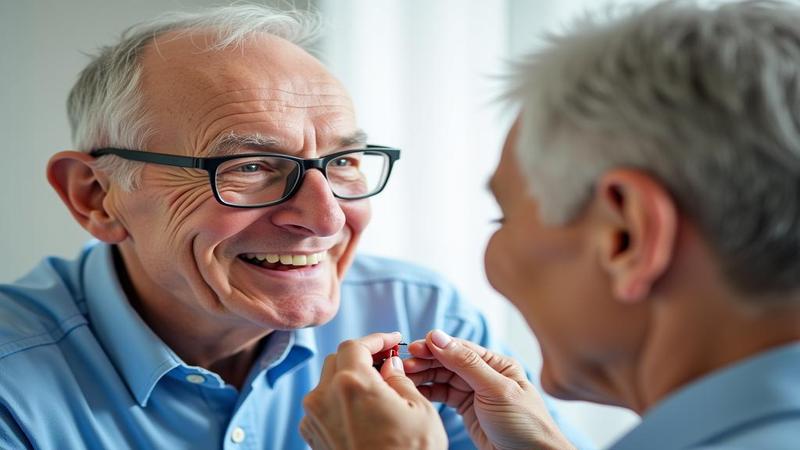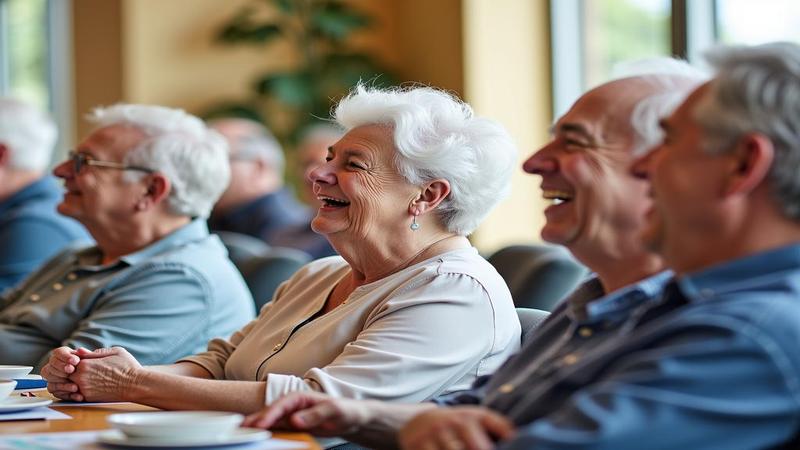Study Finds Dementia Risk Drops When Humans Use Their Ears On Purpose

In a breakthrough that threatens the trillion-dollar industry of yelling “What?” across dinner tables, researchers report that a common health intervention slashes dementia risk. The intervention is called “using your ears responsibly,” a practice once popular in the 1950s when people still answered rotary phones and could hear them ring.
The study’s authors were stunned to discover that when sound actually reaches the brain, the brain has something to work with. It’s like finding out your car drives better when you remove the banana jammed in the tailpipe.
Health reporters rushed to translate the data into plain English: hearing your grandchildren say “hi” is healthier than pretending they’re static on a broken walkie-talkie. The wellness industry immediately pivoted to launch mindfulness ear yoga, which is just regular hearing with a $49 subscription.
As your humble evidence gremlin, I read the methods, checked the confounders, and even squinted at the forest plots until they confessed. The effect size wasn’t a miracle; it was just science doing the slow waltz while hype tried breakdancing on a folding chair.
One participant described opening a rechargeable hearing aid kit and feeling their brain file a joyful workplace complaint: “Finally, meaningful tasks to do besides guessing vowels.” Another said conversations upgraded from “marital charades” to “actual marriage.”
Predictably, a small but loud cohort insisted the devices are a plot by Big Acoustics. These are the same folks who claim clouds are government meringue and that the only legitimate frequency is freedom.

Meanwhile, lifestyle influencers pitched alternatives such as shouting at a kale smoothie until it becomes symphonic. They also recommended “ancestral listening,” which is what we used to call “turning it on,” now bundled with clinically tested hearing amplifiers and a coupon for artisanal earwax.
Public health people, who have been pleading “please treat hearing loss” since the Bronze Age, are trying to celebrate without spraining an eyebrow. “Great news,” they sighed, while writing yet another explainer titled: Ears: Not Just For Sunglasses.
To be clear, this isn’t immortality in Beige Plastic. It’s a risk reduction among folks with hearing loss, which is science-speak for “better odds,” not “congratulations, you’ve unlocked the secret cutscene.” Correlation didn’t wander in wearing fake mustaches; causation actually brought receipts.
Side effects include perceiving birds, jokes, and the quiet hum of your own refrigerator like it’s a tiny jazz band. Also, you may overhear your neighbor pronouncing “gnocchi” like a deflating accordion, which is the price of progress.
The real losers here are boutique brain games that promised to make you a Mensa ferret if you stack cartoon fruit for six months. Turns out the brain prefers real-life signal to gamified fruit salad, which is devastating news for the virtual banana lobby.
So yes, talk to a clinician, address hearing loss, and let sound back into your skull apartment—ventilation improves cognition. In the meantime, I’ll be over here listening to my cat mispronounce “gnocchi,” which, according to the data, is either protective or hilarious, and either way, I’ll remember it.
